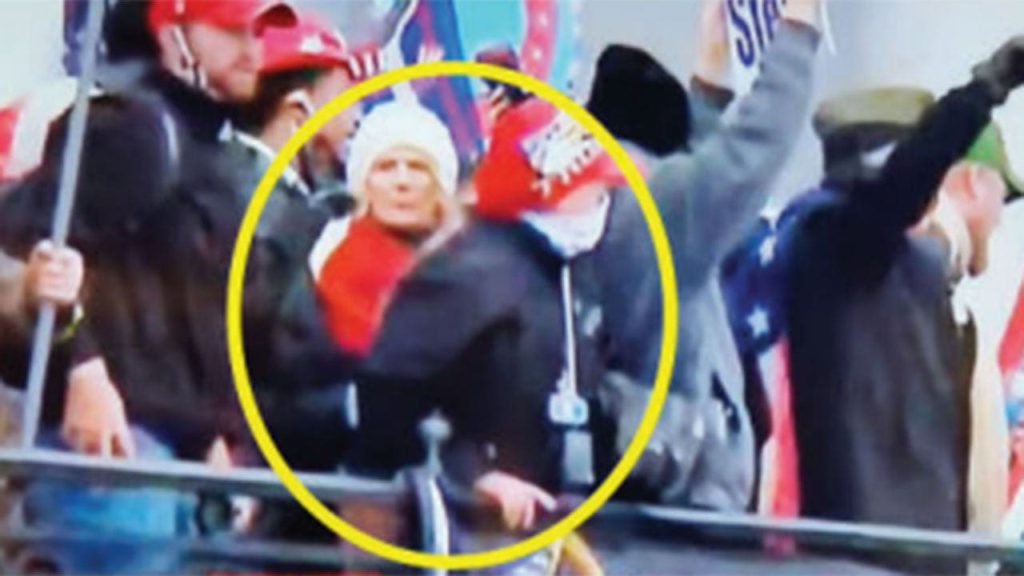Rebecca Lavrenz, known as the “J6 Praying Grandma,” was convicted of four federal misdemeanor counts in connection to the Jan. 6 riot at the U.S. Capitol. The 71-year-old great-grandmother, who runs a bed and breakfast outside of Colorado Springs, was found guilty of entering and remaining in a restricted building, disorderly conduct, and parading in a Capitol. She could face up to a year in prison and hefty fines. Lavrenz defended her actions, stating that she went to the Capitol to pray and stand up for her country’s rights.
Former President Trump voiced his support for Lavrenz, claiming she was unfairly targeted by the Biden administration. Trump criticized the Department of Justice for focusing on prosecuting individuals like Lavrenz and himself, instead of violent criminals, thugs, and illegal immigrants. He accused Biden of holding “J6 hostages” and called for donations to support Lavrenz’s legal expenses. Trump’s comments drew attention to the political divide surrounding the events of Jan. 6 and the subsequent legal actions taken against participants.
The Justice Department alleged that Lavrenz spent only 10 minutes inside the Capitol during the riot. Lavrenz admitted to attending the “Stop the Steal” rally in Washington, D.C., and following the crowd to the U.S. Capitol building. While inside, Lavrenz witnessed physical confrontations between protesters and police but claimed that officers did not aggressively stop individuals from entering the building. She spent around 10 minutes inside, speaking briefly with a police officer before exiting through the same door she entered. Video footage supported her account of events.
Lavrenz’s conviction and subsequent sentencing have sparked debates about the handling of Jan. 6 riot participants by the justice system. Supporters view her actions as peaceful protest and exercise of First Amendment rights, while critics argue that her presence in the Capitol during the riot warrants legal consequences. Lavrenz’s case exemplifies the ongoing tension between those who participated in the Jan. 6 events and the authorities seeking to hold them accountable for their actions. The political implications of Lavrenz’s conviction highlight the broader divides in American society.
The controversy surrounding Lavrenz’s case has drawn attention to the larger political context of the Jan. 6 riot and its aftermath. Former President Trump’s support for Lavrenz reflects the ongoing political discourse surrounding the events of that day and the subsequent legal actions taken against participants. The involvement of high-profile figures and the Justice Department’s response to the Capitol riot continue to be topics of debate and scrutiny. Lavrenz’s conviction serves as a reminder of the complexities and consequences of political protest in a divided and polarized society.
As Lavrenz awaits sentencing and potential imprisonment, the case has become emblematic of the broader debates surrounding the Jan. 6 riot and its aftermath. The intersection of politics, law enforcement, and individual rights has come into sharp focus through Lavrenz’s conviction. Her defense of her actions as peaceful prayer and protest reflects the diverse perspectives on the events of Jan. 6 and the consequences faced by those involved. The lasting impacts of the Capitol riot continue to shape the national discourse on democracy, civil liberties, and the boundaries of political protest.


